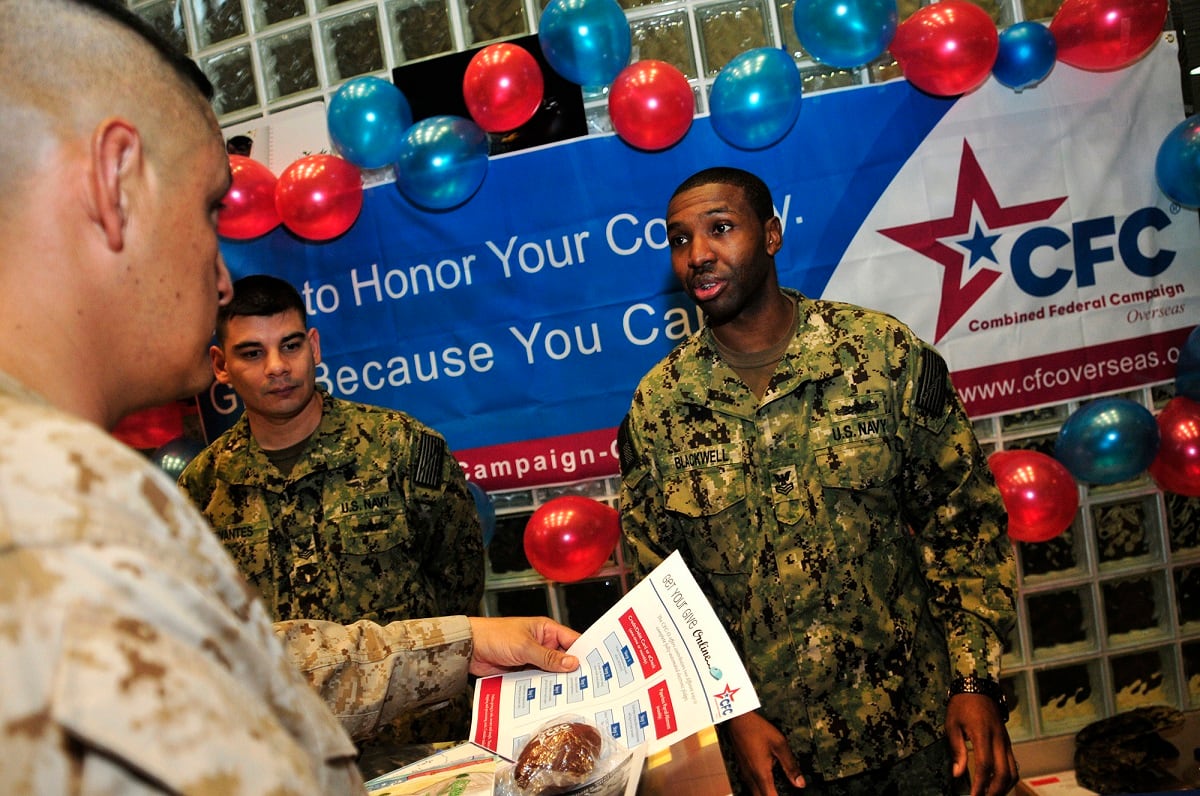The Combined Federal Campaign has kicked off its annual pledge season with some major changes designed to benefit givers, but without a full charity list or a promised web portal that would let donors search available nonprofits.
Nearly half of the charities that participated in 2016 won’t return, said Patrick Maguire, whose Maguire/Maguire firm provides support services for 22 independent charitable federations.
Two of those federations — Military Family and Veterans Service Organizations of America, and Military Support Groups of America — combine to represent more than 130 charities that took part in last year’s campaign, from the Fisher House Foundation to the Semper Fi Fund to the Tragedy Assistance Program for Survivors, better known as TAPS.
“Most of those that left the campaign were local charities,” Maguire said. “The military charities are hanging in to see how 2017 goes.”
Smaller charities may have bailed, he said, because a new fee structure requires nonprofits to pay their share of CFC costs upfront, rather than earmarking a portion of each donation for campaign management.
The goal is for 100 percent of all donations to reach the charities, but the result, Maguire said, is that some charities would have to pay more in upfront fees than they might collect from the campaign itself.
“I understand that about 25 percent of those listed had historically received no designations at all, yet the campaign had to absorb the costs of their participation nevertheless,” he said.
DELAYED START, UNFINISHED DETAILS
As of Wednesday, the Office of Personnel Management hadn’t approved the final list of charities in the federations that Maguire’s firm supports, he said, though he couldn’t speak for other outlets. OPM did not immediately respond to questions regarding the release of the full list.
They also didn’t have a start date for a proposed web portal that will allow online giving worldwide, to include an online search engine to find specific charities or types of charities. This system will be a more secure way of giving for the donor, Maguire said, and will reduce administrative costs for the campaign.
These delays continue despite the entire program being pushed back a month to an Oct. 2 start date (its end date, Jan. 12, is also later than normal). OPM delayed the start to give local CFC zones more time to incorporate program changes, and also announced a grace period Sept. 29 for charities located in areas affected by recent hurricanes.
Local campaigns choose their time frame within that window for agencies to solicit pledges from their workforce.
“It’s been a confusing transition,” said David Coker, president of the Fisher House Foundation. “But the thing I like about CFC is that it lets donors decide, and lets people participate through workplace giving, which is one of the most effective ways people can support the cause they believe in.”
He said the web portal’s delay was concerning, and that “donors may go there once, and not return if it’s not open yet.” He also expressed worry that small charities leaving the CFC “might be the ones most vulnerable to not being able to keep their doors open” without campaign donations.
Still, Coker said, “CFC has always been very kind to us, and we will participate this year if we are allowed.” His organization hasn‘t received the final list.
Other CFC changes include:
- Post-service solicitation: OPM may solicit military retirees and federal annuitants for charitable giving through CFC with recurring deductions from their retired pay. Information was not immediately available from Defense Department officials about how that solicitation will be handled for military retirees.
- Ban the bake sale: Cash won’t be accepted for CFC at events or fundraisers. Instead, events will focus on increase employee awareness of CFC charities.
- More ways to give: Federal employees will be able to pledge time to volunteer with CFC charities, as well as pledging money.
“The credit for the success of the CFC campaign goes to the people who contribute,” Coker said. “CFC is still a tremendous blessing for us. We remain hopeful it will continue to be so in the future. Every contribution really does make a difference for those causes people choose to support.
“Don’t give up on it.”
Karen has covered military families, quality of life and consumer issues for Military Times for more than 30 years, and is co-author of a chapter on media coverage of military families in the book "A Battle Plan for Supporting Military Families." She previously worked for newspapers in Guam, Norfolk, Jacksonville, Fla., and Athens, Ga.
